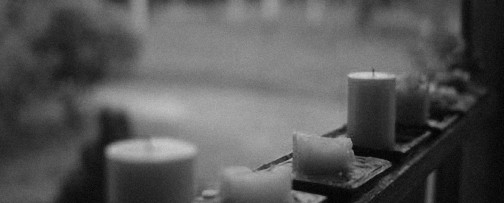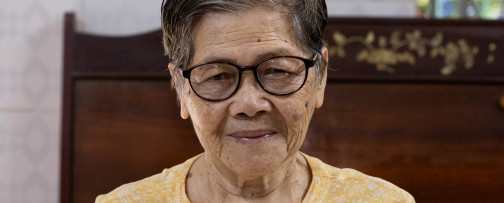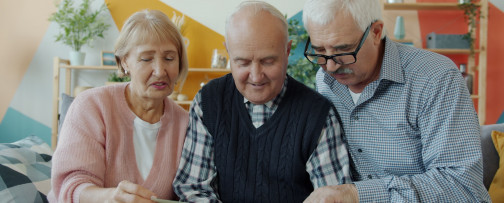Are you someone who writes a to-do list for everything in life? Since you depend on these checklists for grocery shopping, work tasks, and home responsibilities, it makes sense to have a checklist to follow when planning a funeral for someone you love.
Knowing what to do when someone dies can be challenging. You haven’t been through this process before, which is why it is essential to lean on the services of a trusted funeral planning team. They will assist in walking you through each step and often provide a what to do when someone dies checklist to help you see the pathway forward.
Marking off the to-do list is more than preparing for a funeral or life celebration. Every task honors the memories of your loved one, helping you pay tribute to the memories shared over the years. Through this process, the goal is to celebrate a life well-lived while also creating a beautiful experience that friends and family can share.
What to Do Immediately After Someone Dies
The first thing on your what to do when someone dies checklist is to take care of the most immediate needs. This process begins by calling a local funeral provider for help. A funeral director’s sole focus is on providing the assistance and the care that your family needs at this time. The funeral planning team has the skills you need to navigate the tasks ahead, ensuring that you find joy and memories in the experience of honoring your loved one.
Here is a checklist of things you must do immediately after someone dies:
- Contact the Funeral Home: Don’t wait to make this phone call! You need help right away, so it’s best to call the funeral provider ASAP.
- Medical Care: You’ll need a legal pronouncement of death from a medical expert. Depending on the location, you might need to call for medical providers to come, such as hospice care or emergency personnel through 911. In the hospital or a care center, the on-site doctor will take care of this step.
- Arrange Organ Donation: Did your loved one want to leave one last gift in the world? Check the person’s driver’s license to see if they are an organ donor. Tell the hospital staff right away so they can act quickly. This step should be high on your to-do list since organ donation is a time-sensitive process.
- Tell Close Friends and Family: There isn’t a right or wrong way to notify family and friends. Some families find it best to share the news over the phone or through an in-person conversation. In other circumstances, a text or email might be acceptable. Consider splitting this task between several family members.
- Arrange Transportation: Did your loved one already design funeral plans? Now, it’s time to schedule transportation to a funeral home, cemetery, or crematory. The simplest solution is to contact a funeral home or direct cremation provider, and they will take care of door-to-door service.
- Life Details: Certain arrangements must be addressed as soon as possible, such as arranging care for dependents or pets, locking up the person’s property (car and house), and notifying the employer.
What to Do A Few Days After Someone Dies
A few days in, you’re still working through the emotions and also facing an ever-growing checklist. At this point, it’s common for families to focus on honoring and celebrating the person’s life. You’ll still have administrative to-do’s, but many of these things can wait until after you’ve honored a life well-lived.
Here are a few things you should do within the first week:
- Finalize Funeral Plans: Follow the pre-existing funeral plan if the person left instructions. Or meet with a funeral director to go through available packages. Keep an open mind to plan an event that captures the essence of your loved one. Many families prefer life celebrations or memorial services instead of traditional funerals. Check out the Farewelling guide on How to Plan a Funeral. Also, consider these Celebration of Life ideas if you want to hold an upbeat, celebratory event.
- Orders and Funeral Schedule: Your finalized funeral plans will add more items to your checklist. For example, you’ll need to finish the funeral schedule, secure a location, and invite funeral participants to help. Other steps include ordering flowers and printed materials and coordinating food and drinks if needed. Appetizers, anyone?!
- Online Obituary and Memorial: The internet is a great resource where friends and family can share photos, memories, and stories of your loved one. Use this digital platform to notify your circle of announcements and information.
- Enjoy the Memories: It’s easy to get so caught up in the never-ending to-do list that you forget to hold onto the memories. This week, you’ll spend time looking through pictures and videos of your loved one. Notice when a smile comes to your face as you think about the snowball fight last winter or family board game nights around the dining room table.
- Forward the Mail: Don’t let the mail pile up at an empty house. If the person lived alone, then it’s best to notify the post office for mail forwarding.
What to Do A Couple of Weeks Later When Someone Dies
The first week or two after someone dies might feel like a rush of planning and coordination. But your work isn’t done when the funeral is over. There are often additional tasks that you need to handle to wrap up the details of the estate.
Add these tasks to your to-do list:
- Design and Order a Headstone: It’s rare for a headstone to be ready for the day of the burial. So, wait to finalize the headstone design when you have a little more time to spend on this activity.
- Death Certificate Documentation: You need a minimum of 5 – 10 copies of the death certificate to take care of the person’s accounts. Order these certificates right away, so you don’t have any holdups with the other items on your checklist.
- Notify Accounts and Organizations: Go through your loved one’s accounts to notify banks, mortgage companies, financial advisers, life insurance, and more.
- Will or Probate: You need to know what to do when someone dies without a will. Talk to a probate attorney for legal assistance with coordinating the final details of the person’s estate.
It’s easy to get caught up in the questions and checklists when asking what to do when someone dies. But be proactive in keeping the right perspective: these checklists help you honor the person’s life, create a healing experience for family and friends, and celebrate the life well-lived.
If you’re planning a funeral or memorial now and you’d like a lot more guidance, support, and inspiration, check out our Farewelling PlanningToolkit. It was created and curated by our team of experts and editors, with helpful tips, customizable checklists, suggested event programs, a budget tool, ideas for music and readings, and answers when you need them from our angels in customer service.
Recommended Products
- Macorner Hug from Heaven Pillow — Comforting "Hug from Heaven" memorial pillow that wraps the bereaved in warmth and love.
- Memorial Picture Frame — A memorial picture frame for treasured photos of loved ones
- Malister Memorial Crystal Heart — Hand-crafted crystal heart keepsake with a comforting memorial inscription.


-banner.png)





